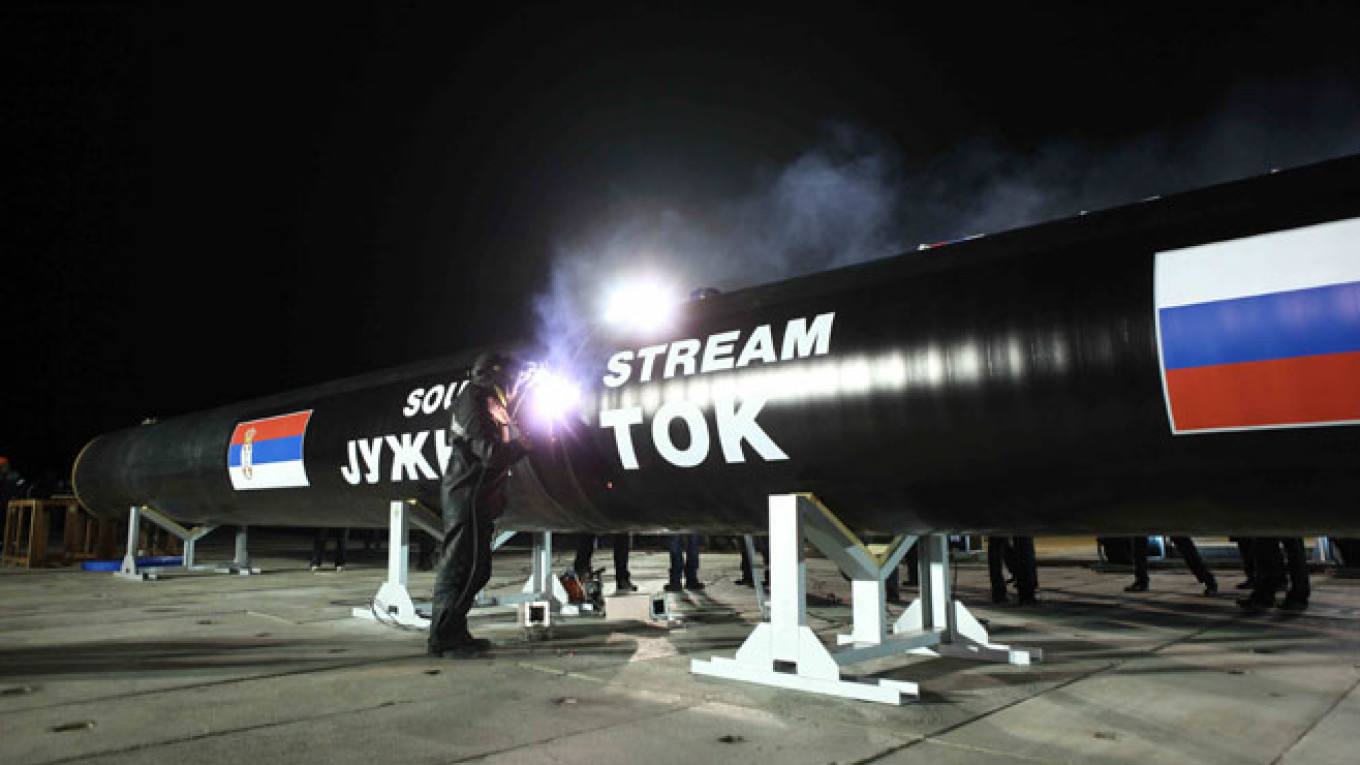The European Union's pressure on Gazprom's South Stream pipeline misinterprets both Russian energy initiatives and certain business decisions — such as Gazprom's refusal to export gas to Ukraine — that would seem highly innocuous in other settings.
These attacks expose an expanding rift between how Russia is perceived by a diplomatic community intent on viewing Russia through a Cold War lens, and a global investor public that praises the fruitful cooperation that has defined our ties in past years and values the even greater prospects of future collaboration. It is high time for the EU to appreciate Russia for the strong, trustworthy partnership that it brings to the table.
Today, the EU narrative that Gazprom's decision to halt natural gas exports to Ukraine is "political blackmail" is wholly inaccurate and coincides with the mistaken portrayal of Russia as a "Soviet Union reborn" that is so very prevalent in international media coverage of business and politics in Russia today. In actuality, Gazprom is acting as would any sound business. If anything, it has gone to great lengths to try to accommodate Ukraine despite its ballooning debt, which has now reached about $4.5 billion.
Unfortunately, the global investor public seems to grasp this truism far better than anyone else. Despite the EU sanctions against Russia and the pressure exerted against the South Stream project, global energy majors continue to line up to capitalize on Russia's shale revolution, with BP, Total, and others having inked agreements in recent months. Thus, although some EU officials continue to call for member states to present a "united" stance against Russia, they would be wise to recall that Russia is no outsider, but an integral part of the international community.
And although international media widely claim that the Russian economy is stumbling amid Western sanctions, in recent weeks I have personally witnessed exactly the opposite: far greater interest among EU, Asian and Middle Eastern investors in our project to launch the Kirishi-2 Oil Refinery, Russia's first waste oil refinery, than perhaps ever before.
And the inescapable truth is that Russia's role as a fitting natural gas provider will only grow as it develops its recoverable shale deposits, estimated at 75 billion barrels. As we possess the world's largest such deposits, including the Bazhenov Field, said to be 80 times larger than the Bakken Field in the U.S. state of South Dakota, the EU is only set to find natural gas cooperation with Russia even more appealing and profitable. It would be a grave oversight for the EU to continue shoving sticks into the spokes of the South Stream project, as it will financially benefit the organization's member states for many years to come.
Such negative actions also set a terrible precedent for future EU-Russia cooperation in the Arctic and in shale. Interest in investing in Russia and signing agreements with Russian firms remains strong, as was witnessed earlier this summer by the attendance of high-profile international decision-makers from the oil-and-gas and finance sectors at the St. Petersburg International Economic Forum.
Notably, after inking a deal with Rosneft around that time to collaboratively explore oil in the Volga-Urals region, BP chief Bob Dudley stated that he envisaged BP investing in other Russian projects. Dudley is only one of numerous international businesspeople who have expressed a similar sentiment.
As Russia shifts focus from its Siberian deposits to a shale campaign that is bound to revolutionize the global energy industry, EU governments should listen to their business leaders and reconsider this mistaken view that Russian business decisions are? rooted in politics and a desire to control markets. In reality, the motivation is simply business as usual.
Andrei Yermolaev is a former deputy of the Leningrad Regional Assembly and the general director of the Kirishi-2 Oil Refinery, Russia's first waste oil refinery, to launch in 2017.
A Message from The Moscow Times:
Dear readers,
We are facing unprecedented challenges. Russia's Prosecutor General's Office has designated The Moscow Times as an "undesirable" organization, criminalizing our work and putting our staff at risk of prosecution. This follows our earlier unjust labeling as a "foreign agent."
These actions are direct attempts to silence independent journalism in Russia. The authorities claim our work "discredits the decisions of the Russian leadership." We see things differently: we strive to provide accurate, unbiased reporting on Russia.
We, the journalists of The Moscow Times, refuse to be silenced. But to continue our work, we need your help.
Your support, no matter how small, makes a world of difference. If you can, please support us monthly starting from just $2. It's quick to set up, and every contribution makes a significant impact.
By supporting The Moscow Times, you're defending open, independent journalism in the face of repression. Thank you for standing with us.
Remind me later.


